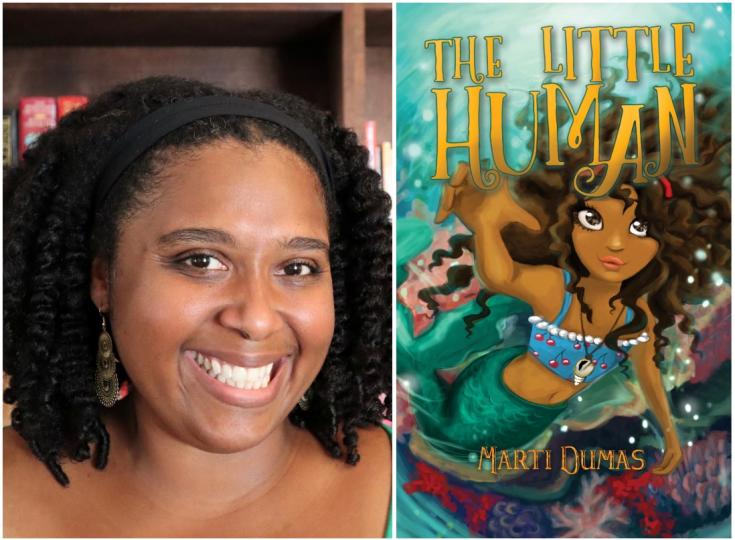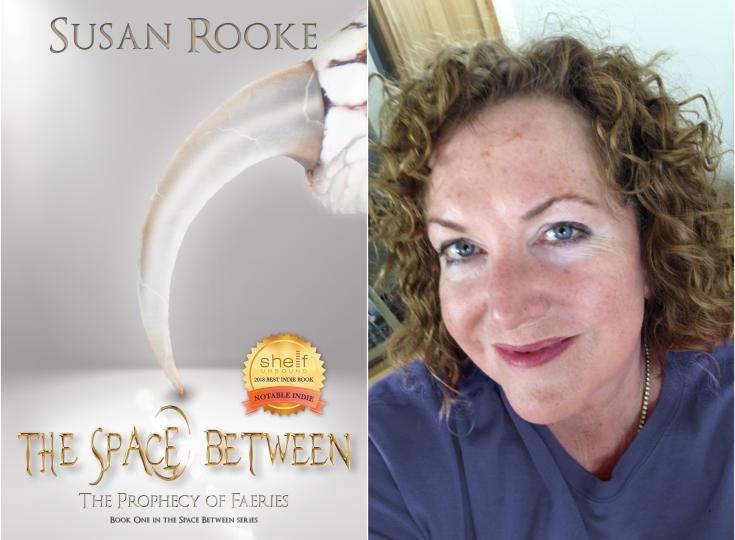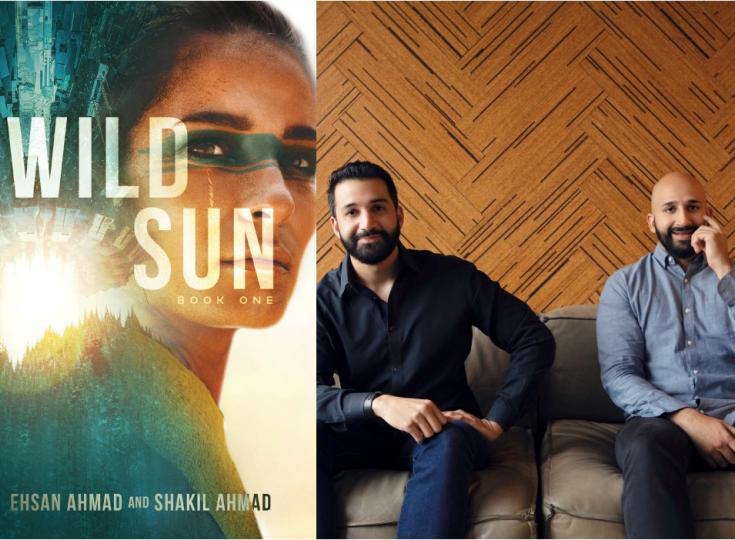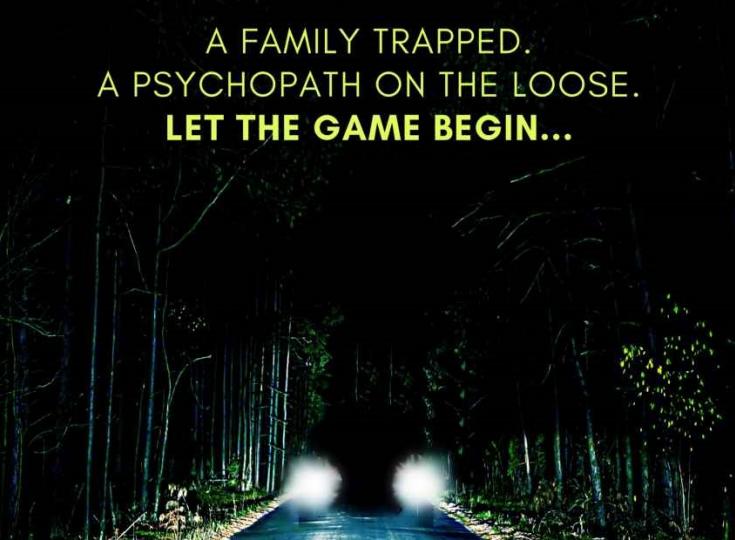S.H. Livernois - Combining a Classic Coming of Age Story With Time Travel Adventure
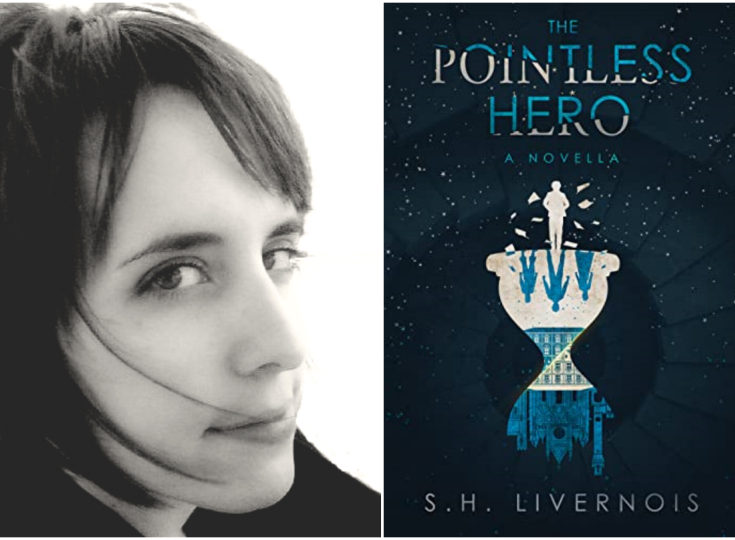
S.H. Livernois lives in Northern New York with her husband and dog. She writes in multiple genres, but everything she writes scares both herself and her loved ones. She is an author and artist, empath and introvert, dog mom and wife, traveler, and nature lover. As our Author of the Day, she tells us all about her book, The Pointless Hero.
Please give us a short introduction to what The Pointless Hero is about.
At its core, it's really about being young. The main character, Geordie, is in his early 20s, and at that age you really don't know who you are or where your life is headed. But through the course of his story, he has to face serious hardship and make hard choices, and that's what really helps him figure out who he is.
What inspired you to write this story? Was there anything that made you want to tackle this?
Actually, this story is the result of a random story idea generator I found on Reedsy. Most of my story ideas come to me fully formed or they're compiled from story pieces that show up in my mind separately and then fit together like puzzle pieces. I thought it would be a fun creative exercise to write something that didn't technically arise from my own imagination. Writers can lapse into similar themes and character types over and over, and I didn't want to fall into that trap.
The story prompt was: A journalist, who is always in the wrong place at the wrong time. A jeweler, who likes to read obituaries. It's a suspense story about a mission of revenge. It kicks off at a hotel with the exposé of a shameful secret. (Note that: everything will change when a glamorous aunt enters the picture.) And there's a twist! Someone's faulty memory ends up being the game-changer.
Of course, the story became my own during the brainstorming process, but the themes and settings and characters arose to fit this prompt. It was challenging, to force my imagination to work within these limits.
Tell us more about Geordie Ditto. What makes him tick?
He really just wants to be a nice guy, all the time, to everyone. He's open-minded and kind and he's still at that age where he truly believes he can always do the right thing, that life is going to allow him to do the right thing. And he's still young enough to be naïve and think life is rosy, too. You grow up when you realize it’s not always possible to be nice or to do the right thing, that the world is a tough place that doesn't care about what you want.
Fate and destiny are two central themes in this novella. Why?
Because it's really at the forefront of your mind when you're young. Who am I? Where is my life headed? What am I on this planet for? This period of life--in between childhood and adulthood--is supremely difficult and very frightening. These are the questions Geordie is asking himself at this moment. And, as it happens, other people are very interested in the path his life takes, too.
Besides writing, what other secret skills do you have?
I'm an avid photographer and I enjoy drawing and oil pastels. I really just like to do anything creative.
Interesting cover. Please tell us more about how it came about.
I had nothing to do with it, actually! I work with this really awesome design company called Miblart. They've done many of my covers and they're fantastic. I just told them what the story was about and they came up with the rest. It's actually one of my favorite covers that they've done for me.
Readers say the story had them hooked throughout. How did you pull this off?
I think it's because I am very methodical when I write. In only one phase of the writing process do I really let loose creatively, and that's when I'm brainstorming. And even then, I'm constantly analyzing my crazy ideas to see if they make sense. I also outline extensively. In part of my outline structure I identify three elements in each chapter--the hook, the obstacle, and the prompt. The hook is what draws the reader in, the obstacle is the conflict, and the prompt is what makes the reader want to keep reading. I also always just make sure there are never dull moments or unnecessary scenes, sentences, or even words. I think this skill comes from the days when I was a reporter at my local newspaper--like Geordie!
Does the book contain an underlying message? What do you hope readers will take away from it?
The underlying message is that everyone is important, and that the universe and all of its working parts are so complex that we can never truly understand or grasp just how important we are or how our lives effect others. These days people seem to think their actions exist in a bubble, that there isn't a sphere of influence around them. And it's just not true--we are all connected.
What was your greatest challenge when writing this story?
Adhering to the limitations of the story prompt was challenging. But that was the point of writing it--to extend myself creatively.
Do you work to an outline or plot or do you prefer to just see where an idea takes you?
I outline extensively. I cannot write without an outline--I've tried it and it wasn't pretty. Outlining lets me really analyze a story and make sure all of its parts work together. I think writing a story is both a science and an art. There are times when you have to let the creative juices and instinct just go where they take you; this is my brainstorming phase and, oddly, my revision phase to some extent. And there are times when you have to be objective and analytical, and that's the outlining phase for me. Once I get into the world and emotion of a story, I can't go back to the analytical phase, I can't separate myself from it and objectively see what doesn't work. So I outline before I get invested.
To what degree do you believe authorial intent determines how a work should be interpreted?
I think once a story has been put out into the world, it's out of the author's hands. What I wanted to say in a work and what people actually see when they read it can be two different things, and that's fine. Every person enters the world of your story with different experiences, different emotional needs in that moment in time, different biases and beliefs. That's going to color what they see in your work.
However, when someone is very wrong about what your story means, then I get a little twitchy. I have a short story about a zombie who used to be an actor, and despite his decomposed condition, he goes on one last audition hoping to get the part. He doesn't; the people he auditions for reject him just because he's a zombie, not because he's a bad actor. And someone got very irate with me because he felt there were homophobic undertones. He believed the zombie was actually supposed to represent a gay man. I understand how he could see it that way, because the story was about discrimination, but that wasn't my specific intent.
Do you have any interesting writing habits? What is an average writing day like for you?
I work nights at my family's business, a pizza and wings joint. So my writing time is in the morning, which is absolutely perfect. I have my own office and I start my day there at maybe 8 or so. Each day I designate for a different type of writing, and that's according to whether or not I'm working later. Saturdays through Mondays I don't work so I can write longer; on those days I work on my book. Wednesdays and Thursdays I work nine hours, so in the morning I write for about three, usually on short stories. Tuesdays and Fridays I work ten hours, so on those mornings I write for only a couple hours at most, so I work on shorter pieces. Work really structures my writing time, gives me deadlines and keeps me working urgently, rather than lolly-gagging.
What are you working on right now?
The fifth book in my mystery series. The series is called The Frontenac Sisters: Supernatural Sleuths & Monster Hunters. I actually already wrote a fifth book in the series; it was called The Joyful Damned, and it was a mess. I wrote it during the worst of the pandemic and I just had to scrap it and move on. So now I'm working on the replacement fifth book; I've started the outlining process on it. It's called Black at Night, and it's actually about storytelling and dreaming and the human imagination, but like all my stories, it'll be creepy and scary.
And I'm working on a post-apocalyptic short story, as-yet unnamed, about a bed and breakfast keeper on the Erie Canal in upstate New York, not too far from where I live. It's based on the very first hotel my husband and I stayed in right after the 2020-21 pandemic winter. It was April and we were the only guests and it was fairly creepy. I just started imagining this B&B in a post-apocalyptic future, where there's no electricity and so on, and all the dark and quiet, and a sole woman keeping this place in ship shape, waiting for new guests. It was just so symbolic to me of crossroads--being captive between two phases of your life and not knowing which way to go.
Where can our readers discover more of your work or interact with you?
Readers can check me out on my website (shlivernoisauthor.com). I also have a free Starter Library that includes some short stories and excerpts of my books (books2read.com/u/bxaW6e) so readers can see if they like my style. I'm on Goodreads and Bookbub, too. I don't do social media or newsletters, but readers can email me if they want. I don't mind that at all.
